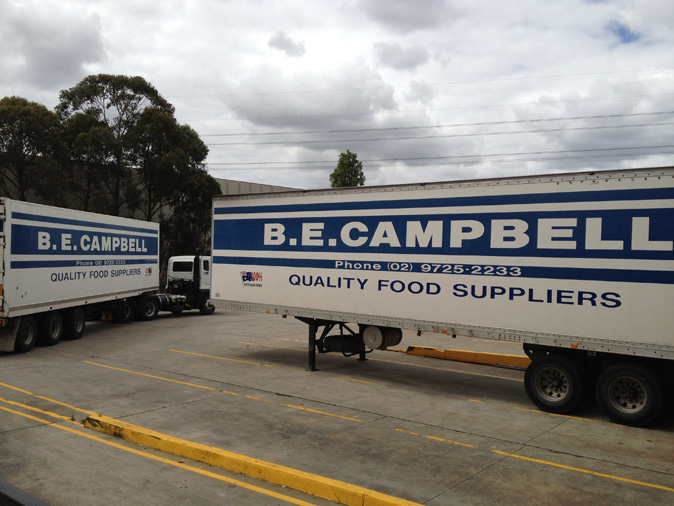Case study: Energy audit leads to savings for new-look Young abattoir

B.E Campbell meat wholesalers requested an OEH Energy Saver audit of the abattoir’s refrigeration plant to determine whether the existing commercial refrigeration systems should be recommissioned and expanded to meet anticipated production demands or if a larger industrial solution would be more cost-effective.
BEC website
By upgrading the refrigeration plant at its newly acquired abattoir in Young, meat wholesaler BE Campbell will reduce its annual power consumption by a third, cut carbon emissions significantly and make ongoing annual savings of nearly $300,000.
One of Australia’s largest family-owned meat wholesalers, Sydney-based BE Campbell has supplied product to supermarkets, butchers, restaurants and distributors since 1969 and runs a small export business. In 2010, MD Ted Campbell diversified operations by buying a recently-closed abattoir in Young that had been supplying meat to BE Campbell. A substantial refrigeration upgrade was needed, however, to make the new business viable.
BE Campbell requested an OEH Energy Saver audit of the abattoir’s refrigeration plant to determine whether the existing commercial refrigeration systems should be recommissioned and expanded to meet anticipated production demands or if a larger industrial solution would be more cost-effective.

‘While the beef refrigeration equipment at the abattoir had been upgraded in 2006, it used synthetic refrigerants,’ says Campbell. ‘With the HFC refrigerant levy, synthetic refrigerants will become very expensive. Rising power prices and network charges also meant energy efficiency was a key consideration.’
The proposed upgrade to the beef and lamb refrigeration facilities, including the installation of water-cooled industrial ammonia chillers and glycol pipe work, is estimated at just over $3.5 million.
Both business cases considered the installation of CO2 refrigeration units for offal blast freezing but Campbell vetoed this option. ‘Ammonia is old school, so every refrigerant company can service it,’ he says. ‘Whereas finding a specialist to service CO2 in Young might be more problematic.’
Campbell says the audit was thorough and quantified potential benefits from various options. ‘Refrigeration has always been an integral part of our business so we had a good idea about what could work,’ he says. ‘What surprised me … was the extent of the savings that could be achieved. The new beef ammonia chiller will enable us to save around $190,000 per annum in electricity and maintenance costs; expected savings from the new lamb chiller will be around a quarter of a million dollars.
‘BE Campbell is a relatively small company competing against multinationals, so our margins are slim. We’re constantly looking for ways to improve operating costs and efficiencies.
‘I’d highly recommend an Energy Saver audit to businesses with significant refrigeration plant. Having a thorough going-over of your systems by independent auditors … is very worthwhile.’
The upgrade will lead to the creation of 300 local jobs, and Energy Savings Certificates that will offset the capital investment significantly.
To arrange a subsidised Energy Saver audit, contact energysaver@savepower.nsw.gov.au.

